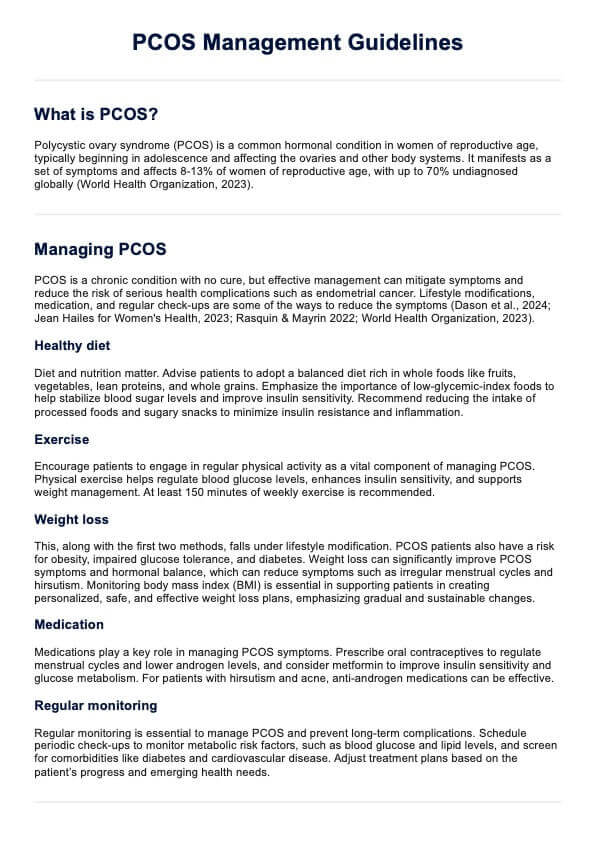Unfortunately, there is no cure for PCOS. However, symptoms can be managed to avoid serious health risks like endometrial cancer.

PCOS Management Guidelines
Discover effective strategies for managing PCOS with our PCOS Management Guidelines handout.
Use Template
PCOS Management Guidelines Template
Commonly asked questions
Women with PCOS have a markedly increased risk of obstructive sleep apnea, which is a 5-to-10-fold higher likelihood compared to those without PCOS.
Yes, depression and anxiety are frequently seen in women with PCOS but are often ignored and remain untreated. Providing emotional and mental support can significantly enhance their quality of life.
EHR and practice management software
Get started for free
*No credit card required
Free
$0/usd
Unlimited clients
Telehealth
1GB of storage
Client portal text
Automated billing and online payments











